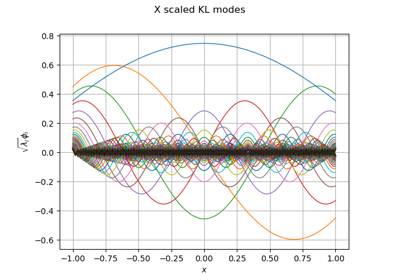FieldToPointConnection¶
- class FieldToPointConnection(*args)¶
Composition function
where
acts on fields and
produces points.
- Available constructors:
FieldToPointConnection(f_Function, g_FieldToPoint)
FieldToPointConnection(f_FieldToPoint, g_FieldFunction)
- Parameters:
- f_Function
Function Function that acts on points and produces points
- g_FieldFunction
FieldFunction Function that acts on fields and produces fields
- f_FieldToPoint, g_FieldToPoint
FieldToPointFunction Function that acts on fields and produces points
- f_Function
Methods
Get the number of calls of the function.
Accessor to the object's name.
Accessor to the function
of class
FieldFunction.Accessor to the function of class
FieldToPointFunction.Accessor to the function
of class
Function.Get the description of the input field values.
Get the dimension of the input field values.
Get the mesh associated to the input domain.
getMarginal(*args)Get the marginal(s) at given indice(s).
getName()Accessor to the object's name.
Get the description of the output vector.
Get the dimension of the output vector.
hasName()Test if the object is named.
setInputDescription(inputDescription)Set the description of the input field values.
setName(name)Accessor to the object's name.
setOutputDescription(outputDescription)Set the description of the output vector.
Notes
This class is a particular case of the general class
FieldToPointFunction. Thus it doesn’t implement the gradient nor the hessian.- __init__(*args)¶
- getCallsNumber()¶
Get the number of calls of the function.
- Returns:
- callsNumberint
Counts the number of times the function has been called since its creation.
- getClassName()¶
Accessor to the object’s name.
- Returns:
- class_namestr
The object class name (object.__class__.__name__).
- getFieldFunction()¶
Accessor to the function
of class
FieldFunction.- Returns:
- g
FieldFunction The function
that acts on fields to produce fields.
- g
- getFieldToPointFunction()¶
Accessor to the function of class
FieldToPointFunction.- Returns:
- func
FieldToPointFunction The function
or
that acts on fields to produce points.
- func
- getFunction()¶
Accessor to the function
of class
Function.- Returns:
- f
Function The function
that acts on points to produce points.
- f
- getInputDescription()¶
Get the description of the input field values.
- Returns:
- inputDescription
Description Description of the input field values.
- inputDescription
- getInputDimension()¶
Get the dimension of the input field values.
- Returns:
- dint
Dimension
of the input field values.
- getMarginal(*args)¶
Get the marginal(s) at given indice(s).
- Parameters:
- iint or list of ints,
Indice(s) of the marginal(s) to be extracted.
- iint or list of ints,
- Returns:
- function
FieldToPointFunction The initial function restricted to the concerned marginal(s) at the indice(s)
.
- function
- getName()¶
Accessor to the object’s name.
- Returns:
- namestr
The name of the object.
- getOutputDescription()¶
Get the description of the output vector.
- Returns:
- outputDescription
Description Description of the output vector.
- outputDescription
- getOutputDimension()¶
Get the dimension of the output vector.
- Returns:
- d’int
Dimension
of the output vector.
- hasName()¶
Test if the object is named.
- Returns:
- hasNamebool
True if the name is not empty.
- setInputDescription(inputDescription)¶
Set the description of the input field values.
- Parameters:
- inputDescriptionsequence of str
Description of the input field values.
- setName(name)¶
Accessor to the object’s name.
- Parameters:
- namestr
The name of the object.
- setOutputDescription(outputDescription)¶
Set the description of the output vector.
- Parameters:
- outputDescriptionsequence of str
Description of the output vector.
 OpenTURNS
OpenTURNS
